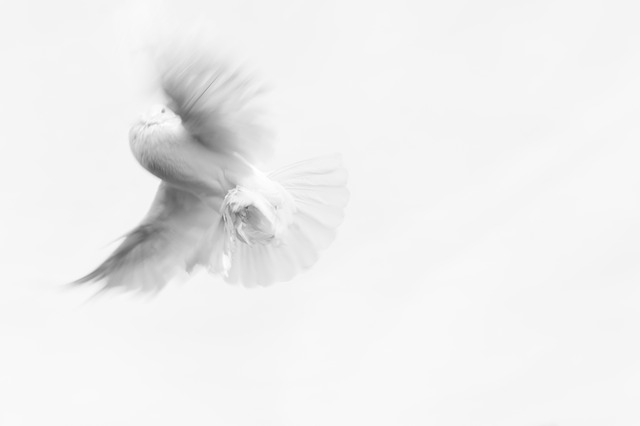Erin Stalcup
Possibly many of you have done the thing this person is charged with. If we, the court, knew it, you would be on trial. We’re seeking to see today if you can be an impartial judge of this person who is accused of not loving her neighbors as she loved herself.
The judge in bright purple robes says to the twenty-six assembled potential jurors, If your answer to any of these questions is yes, please raise your hand.
When lightning strikes, do you anticipate the thunder with pleasure?
With dread?
Do waves make you feel infinite?
Inconsequential?
Is your spirit lightened when you see a rainbow?
A photograph of a rainbow?
Do dark clouds darken you?
She has a wide face and potential jurors wonder if she would have lovely cheeks if she smiled. She is surprisingly thin on top for how wide she is below, or the other way around. She wears a fitted black suit and crisp linen shirt and pearls, the uniform except for the thumb ring inlaid with stones. Some potential jurors see that as an act of rebellion. She regularly uses that hand to tuck a strand of hair behind her ear, and after a full day of questioning she once lifts her hand and pauses midair, then lowers it to her lap, as if noticing and correcting her nervous gesture. Potential jurors know that she teaches mathematics at the local community college and that she has pled not guilty.
Does sunshine burn your skin?
Do you enjoy the sensation?
Do you put sugar and whole milk into your coffee?
Can you eat an entire bag of potato chips by yourself?
Do you feed others?
Do you understand calculus to be a following of steps that aren’t choices, but applications of patterns?
Do you believe mathematics should be a required course for all majors?
Do you believe in the inherent value of education?
Of religion?
This is the second day of questioning; yesterday—did any of you see the woman with the sign, and read what it said?
Juror 54 thinks the defendant looks like his daughter. He is excused.
Juror 17’s favorite smell is rain in a coniferous forest. He is selected.
Juror 21 loves that arid deserts, drought-ridden, can smell like rain if creosote grows there. She is excused.
Juror 67 enjoys very spicy food, feels it leads to transcendent sensations. She is selected.
Juror 4 is a Buddhist nun. She is selected.
Juror 89 is a Catholic priest. He is selected.
Juror 56 saw what was written on the sign. She is excused. The other jurors are never told what it said.
Do you find it difficult to sit in judgment of others?
Are you able to apply the law in this situation, despite your own personal feelings about the validity of the law?
Do you share the bounty of your gardens with your neighbors on either side?
When you walk past a person begging alms, do you give him or her your change?
A bill?
Nothing?
A smile?
A word?
Have you invited strangers into your home?
Must we tend to those who are not our kin?
Is the worst thing that ever happened to you betrayal?
Rape?
Thoughts of suicide?
Loss?
Someone not loving you the way you loved him or her?
When you hear someone moaning through the walls, do you go out into the night to see if it is in pleasure or in pain?
Do you believe loving others as ourselves requires actions, or are thoughts sufficient?
Are the people of other nations our neighbors?
This concludes our questioning. We have chosen our twelve jurors. Those who have not been selected are free to leave, and thank you for your service to your community.
The accused says to herself, Yes. No. Yes. Yes. No.
The color of lightning. The smell of campfire in my clothes, days after. The melting of bone marrow in my mouth. The order of formulas, the answers. I cannot shelter them all. The thread that binds us each together is the rope from which I will hang.
Yes. No. Yes. Yes. No. No.
Erin Stalcup’s short stories have appeared in The Kenyon Review, Kenyon Review Online, The Sun, and elsewhere, and she has creative nonfiction forthcoming in The Laurel Review and STIR. Erin received her MFA from Warren Wilson College’s Program for Writers. After a decade of teaching in community colleges, universities, and prisons in New York City, North Carolina, and Texas, she recently returned to her hometown of Flagstaff, where she has joined the creative writing faculty at her alma mater, Northern Arizona University. Erin is the Co-Editor of the literary journal Waxwing.




